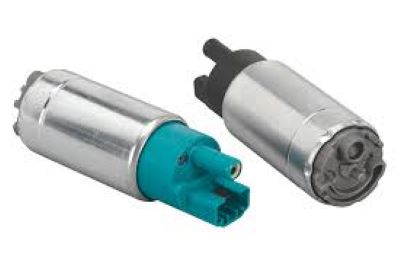Yes, your car can have low power output because of a fuel pump problem as the pump only delivers refined gasoline from the gas tank to the engine under pressure. Fuel pumps that are starting to go bad can provide an uneven fuel flow or a low pressure; either way, the end result will be poor engine performance. The demands from acceleration are not going to able to provide the engine with enough fuel causing a huge decline in power.
In general, fuel delivery pressures fall somewhere between 30–80 psi depending on the engine application. If it can no longer do its job because of wear and tear, a clog or electrical issues the engine will run lean (too much air compared to fuel). This lean mixture lowers engine power and efficiency making acceleration a struggle, rough idling, or in extreme cases even no more run the car. A 2020 National Institute for Automotive Service Excellence (ASE) report revealed that almost 15% of low power complaints in vehicles were attributed to fuel pump problems.
Fuel-pump wear (resulting in too much current being dragged through the system) can also result in voltage drops. All of this would not only impact the pumps ability to deliver fuel, it can interfere with other engine management systems further diminishing power. The Routine 8-10 amp pump should only draw in the vicinity of 12-15 amps for a larger pump, any greater will certainly not supply enough fuel pressure to keep the best engine functioning.

A faulty fuel pump can cause a decrease in power output, which, at times, may be misinterpret for other issues. Drivers might experience hesitation during acceleration or reduced efficiency (both of which can result from a failing fuel pump or dirty fuel filter, for example). An aged, but not yet completely dead fuel pump may also contribute to intermittent power loss, especially when you lose power going uphill or while under heavy load though the-induced increased demand overwhelms the tired old fart of a fuel pump.
An automotive recall of more than 500,000 vehicles in 2019 was related to defective fuel pumps causing engine stalling and low power output. It underscored how important a good fuel pump is to engine performance, particularly in a modern application that requires the high fuel pressure manganese absorbs so well.
Replacing a failing Fuel Pump is critical to restoring normal engine performance and preventing a costly fuel system from being damaged long term. Other fuel pump failure prevention items include changing the fuel filter and using high-quality pumps to ensure maximum power per dollar spent.